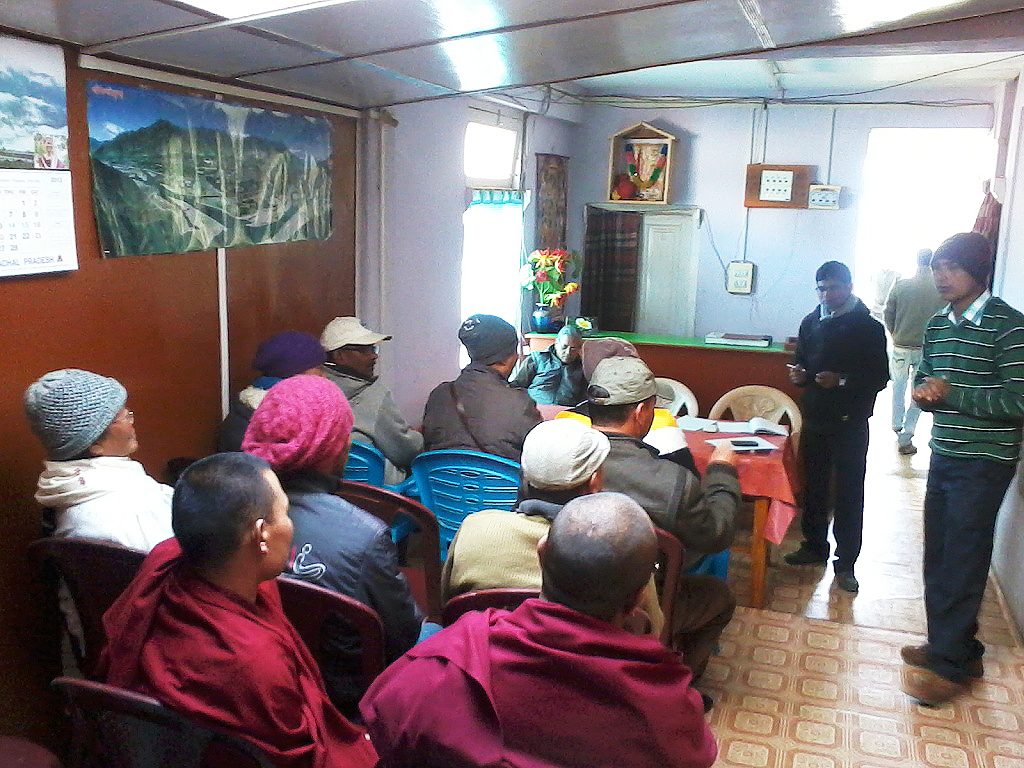Shaping the future: Our strategy for research and innovation in humanitarian response.

Shaping the future: Our strategy for research and innovation in humanitarian response.

For remote and difficult access regions, why do we need a DRR model that is managed by the community members? As the harsh winters set in and choked the transportation and communication networks in the high altitude stretches of the Himalayan mountain range, the need and significance of the venture became more evident. The need for a decentralised self-sufficient system for real-time information on local environment (and community preparedness), which can operate in remote villages cut-off from the mainstream was confirmed time and again, as the research team struggled to gain access in certain pockets and the relevant stakeholders braved the harsh conditions often well below freezing points to come together for the grassroots workshops.
As we continue with our blog after a brief recess, we are happy to report that the grassroots consultations across the Himalayas have been concluded. The multi-stakeholder workshops engaged 34 members in Pithoragarh district, Uttarakhand (including Sub-Divisional Magistrate, Agriculture Division representatives), 30 members in Tawang District, Arunachal Pradesh (including Forest Department, Krishi Vigyan Kendra/Farm Science Centre, District Horticulture Department representatives, doctors, local NGOs working on environment protection) and 25 members in West Kameng District, Arunachal Pradesh (including representatives from Agriculture Department, Horticulture Department, local NGOs). The stakeholders also comprised village heads and zonal committee heads in the age group of 55 to 60 years, with in-depth knowledge of the target locations who provided inputs on early warning signs as noted in community beliefs. Wind direction, flowering of bamboo/particular herbs, cry of deer/dogs/fox/crow, restlessness of horse/mule/ yak, movements of mice/rodents etc., were noted as key and often quite reliable indicators. They also highlighted chronic food insecurity periods in the aftermath of a disaster in areas where the villages remain cut-off for a long time.

Meanwhile, the research team initiated national level consultations with thematic experts and specialists to explore recommendations for the DRR model. Discussions have been held with representatives of Disaster Mitigation & Management Centre (Uttarakhand), District Commissioner (Leh, Jammu & Kashmir), Sphere India – National Coalition of Humanitarian Agencies in India, Dept of Water Resource Development & Management – IIT Roorkee, Geo-Hazard Risk Management Division – National Institute of Disaster Management, Natural Resources Data Management System (NRDMS) – Ministry of Science & Technology, Institute of Industrial Science – University of Tokyo, ACTED, SEEDS, Geosciences and Geohazards Dept – Indian Institute of Remote Sensing and Global Forum for Disaster Reduction (GFDR) – India. Various useful scientific tools, case studies, precautionary measures for community based surveillance and reporting have been noted through these discussions. The research team also had the opportunity to consult participants of two international workshops they attended (on Landslides Mitigation And Management Practices, hosted by National Institute of Disaster Management; and on Building Disaster Resilient Societies – Lessons from Japan, hosted by Global Forum for Disaster Reduction and Japan Foundation). Consultations with several national and regional institutes are currently underway along with district, state and national level authorities mandated to implement DRM plans. We hope to share further updates as the process for developing the blueprint for the DRR model reaches the final stage.

 Please upgrade your browser
Please upgrade your browser
You are seeing this because you are using a browser that is not supported. The Elrha website is built using modern technology and standards. We recommend upgrading your browser with one of the following to properly view our website:
Windows MacPlease note that this is not an exhaustive list of browsers. We also do not intend to recommend a particular manufacturer's browser over another's; only to suggest upgrading to a browser version that is compliant with current standards to give you the best and most secure browsing experience.